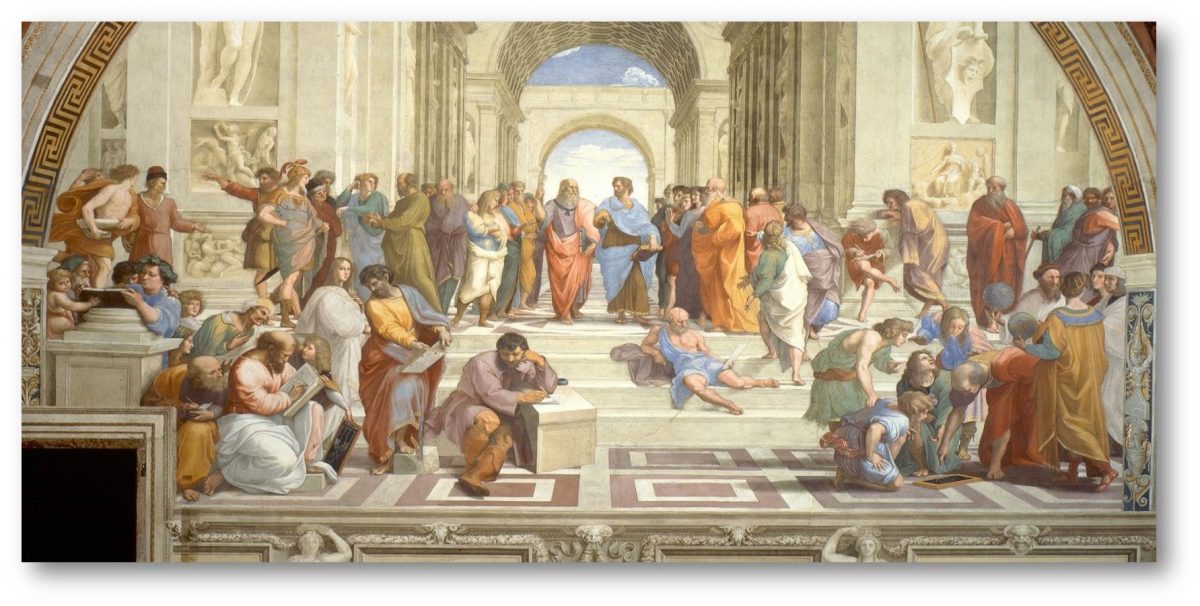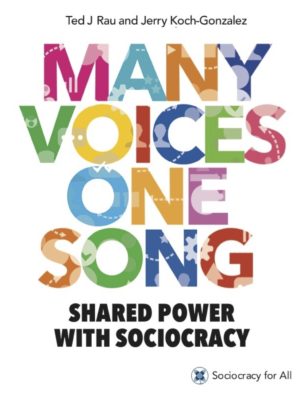Deliberative democracyThe Centre for Deliberative Democracy and Global Governance ... More (or discursive democracy) is a form of democracy in which deliberation is central to decision-making. It adopts elements of both consensus decision-making and majority rule. The term was originally coined by Joseph M. Bessette in his 1980 work “Deliberative DemocracyThe aim of the independent, non-partisan newDemocracy Founda...: The Majority Principle in Republican Government“ in How democratic is the constitution? 1980.— Wikipedia
Deliberative democracy is a field of political inquiry that is concerned with improving collective decision-making. It emphasizes the right, opportunity, and capacity of anyone who is subject to a collective decision to participate (or have their representatives participate) in consequential deliberation about that decision. “Consequential” means deliberation must have some influence. — John Dryzek and Simon Niemeyer, Centre for Deliberative Democracy & Global Governance
Deliberative democracy has its roots in the Athenian-style democracy that originated in ancient Greece where decision-making was carried out by large gatherings of citizens. It is based on the idea that authentic discussion between free and equal citizens can enable consensual decision-making which has legitimacy and is much less vulnerable to the distortions that come with party politics.
- Debate should be informed and informative, enabling people to explore issues from a range of perspectives based on sound argument rather than personality.
- Participants should be willing to talk and to listen with civility and respect.
- Participants should represent a range of backgrounds and perspectives from across the general population.
… for some of the more complex and long-term challenges facing contemporary society, the short-term political horizons of the party political system and the binary choice offered through referenda lack the sophistication to come to difficult decisions. — “Our Call for Action on Deliberate Democracy,” Royal Society for the encouragement of Arts, Manufactures and Commerce (RSA).
First, issues within a democracy should be public and should be publicly debated. Second, processes within democratic institutions must be public and subject to public scrutiny. Finally, in addition to being provided with information, citizens need to ensure the use of a public form of reason to ground political decisions, rather than rely on transcendent sources of authority available only to a segment of the citizenry, such as revealed religion. — Encyclopedia Britannica
On deliberation vs discussion vs spin
Deliberation is more than discussion. Deliberative democracy is talk-centric. But talk alone can be pathological, producing wildly mixed results from an ideal deliberative perspective. — “Twelve Key Findings in Deliberative Democracy Research” in Dædalus, The Prospects & Limits of Deliberative Democracy, Summer 2017. PDF is available online.
[Minimally, deliberation means] mutual communication that involves weighing and reflecting on preferences, values, and interests regarding matters of common concern…in contexts of equal recognition, respect, reciprocity, and sufficiently equal power for communicative influence to function. — The Oxford Handbook of Deliberative Democracy
The most important contrast is with modes of communication that actively attempt to mislead. Political ‘spin’, for example, is manifestly not deliberative because it is strategic, rather than communicative. In other words, it is designed to manipulate opinion.— John Dryzek and Simon Niemeyer, Centre for Deliberative Democracy & Global Governance
Ultimately, citizens should be swayed by the force of the better argument rather than by private concerns, biases, or views that are not publicly justifiable to their fellow deliberators. — Encyclopedia Britannica
Reasons that [can] be accepted by free and equal persons seeking fair terms of cooperation. — “What Deliberative Democracy Means.” PDF of first 29 pages is available from Princeton University Press.
On listening and changing
Good democratic process requires that we, the citizens open our minds to competing perspectives, even if we ultimately reject opposing arguments. We need sources of information that digest these views and present them in ways that are trustworthy. It is the ultimate expression of freedom of choice, to actively choose among alternative, rather than blindly ignore them. — John Dryzek and Simon Niemeyer. Centre for Deliberative Democracy & Global Governance
But deliberation isn’t just about how the communicator should act. It is also important for the listener to engage with the message or argument with an open mind; a willingness to engage with alternative positions, attempting to understand any merit that arguments might have.— John Dryzek and Simon Niemeyer, Centre for Deliberative Democracy & Global Governance
this disposition has more recently been referred to as the “deliberative stance,” which political theorists David Owen and Graham Smith have defined as “a relation to others as equals engaged in mutual exchange of reasons oriented as if to reaching a shared practical judgement.— “Twelve Key Findings in Deliberative Democracy Research” in Dædalus, The Prospects & Limits of Deliberative Democracy, Summer 2017. PDF is available online. Authors: Nicole Curato, John S. Dryzek, Selen A. Ercan, Carolyn M. Hendriks, and Simon Niemeyer.
Changing or Forming opinions
What we know from actually observing deliberation in practice (in the form of a minipublic, more on that below) is that, insofar as we can create these ideal kinds of conditions, there is indeed a good deal of change to the positions of individuals. Morever, there is almost a universal increase in satisfaction on the part of participants, in terms of both the process and the outcome.— John Dryzek and Simon Niemeyer, Centre for Deliberative Democracy & Global Governance
A democracy can govern effectively and prosper morally if its citizens seek to clarify and narrow their deliberative disagreements without giving up their core moral commitments.— What Deliberative Democracy Means. PDF of first 29 pages is available from Princeton University Press.
Deliberative democrats recognize that coercive power pervades social relations, but understand that certain kinds of power are needed to maintain order in a deliberative process, to address inequalities, and to implement decisions. — “Twelve Key Findings in Deliberative Democracy Research” in Dædalus, The Prospects & Limits of Deliberative Democracy, Summer 2017. PDF is available online. Authors: Nicole Curato, John S. Dryzek, Selen A. Ercan, Carolyn M. Hendriks, and Simon Niemeyer.
There is, however, growing empirical evidence showing that deliberative practices can flourish in deeply divided societies to good effect, be it in association with, or at some distance from, power-sharing arrangements.… Such deliberation can promote recognition, mutual understanding, social learning about the other side, and even solidarity across deep differences. — “Twelve Key Findings in Deliberative Democracy Research” in Dædalus, The Prospects & Limits of Deliberative Democracy, Summer 2017. PDF is available online. Authors: Nicole Curato, John S. Dryzek, Selen A. Ercan, Carolyn M. Hendriks, and Simon Niemeyer.
Concerns and Criticisms
Some democrats have charged deliberative democracy with being overly rationalistic. For political scientist Lynn Sanders, deliberation works undemocratically for it excludes “those who are less likely to present their arguments in ways that we recognize as characteristically deliberative.”— “Twelve Key Findings in Deliberative Democracy Research” in Dædalus, The Prospects & Limits of Deliberative Democracy, Summer 2017. PDF is available online. Authors: Nicole Curato, John S. Dryzek, Selen A. Ercan, Carolyn M. Hendriks, and Simon Niemeyer.
A seeming commitment to the pursuit of consensus – that is, agreement on both a course of action and the reasons for it – once provided a target for critics of deliberative democracy, who stressed its other-worldly character and silencing of dissident voices.35 However, deliberative democrats have rarely endorsed consensus as an aspiration for real-world decision-making (as opposed to one theoretical reference point).… Rather than consensus, deliberation should recognize pluralism and strive for metaconsensus, which involves mutual recognition of the legitimacy of the different values, preferences, judgments, and discourses held by other participants. — “Twelve Key Findings in Deliberative Democracy Research” in Dædalus, The Prospects & Limits of Deliberative Democracy, Summer 2017. PDF is available online. Authors: Nicole Curato, John S. Dryzek, Selen A. Ercan, Carolyn M. Hendriks, and Simon Niemeyer.
The charge of elitism was one of the earliest criticisms of deliberative democratic theory: that only privileged, educated citizens have access to the language and procedures of deliberation. However, empirical research has established the inclusive, rather than elitist, character of deliberative democracy. — “Twelve Key Findings in Deliberative Democracy Research” in Dædalus, The Prospects & Limits of Deliberative Democracy, Summer 2017. PDF is available online. Authors: Nicole Curato, John S. Dryzek, Selen A. Ercan, Carolyn M. Hendriks, and Simon Niemeyer.
Use and endorsements
Deliberative democracy has been endorsed by the founder of conservatism (Edmund Burke, who thought parliament should be a deliberative assembly), at least one president of the United States (Barack Obama, who thinks the US constitution establishes a deliberative democracy), and even figures in the hierarchy of the Chinese Communist Party (who think that local deliberative democracy can be allowed without competitive elections).— John Dryzek and Simon Niemeyer, Centre for Deliberative Democracy & Global Governance
Entry section for “Use and Endorsements” and the list of the most active deliberative democracy organizationsThe Delibrative Democracy Consortium (DDC)u is an alliance o... are incomplete.
x
Categories:


